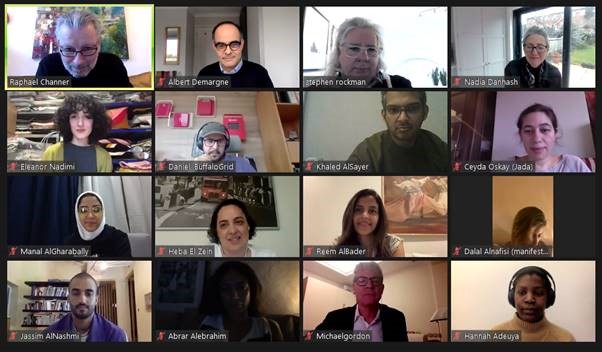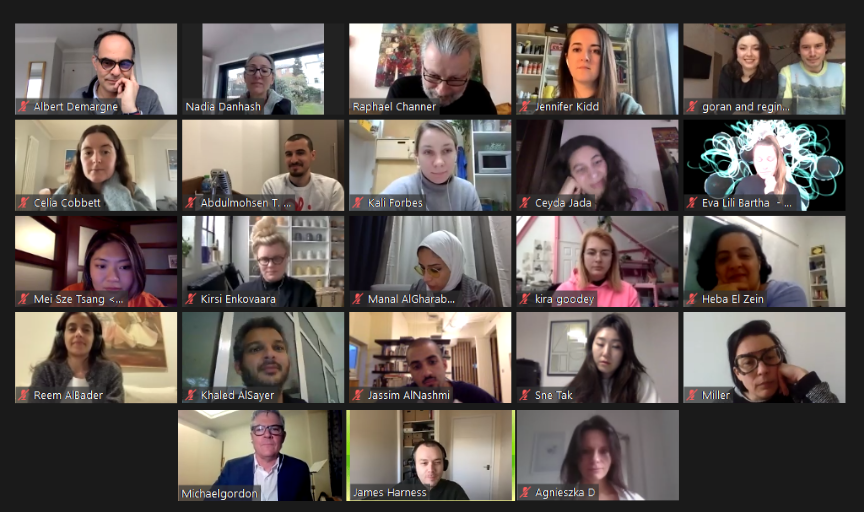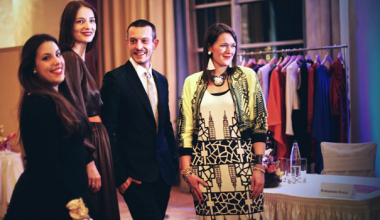Small businesses in Kuwait are facing immense challenges during the COVID pandemic, where some companies have been forced shut down while many others are trying their best to adjust to the circumstances. Sensing the urgent need to help small businesses in the creative sector, the British Council in partnership with the British Embassy collaborated with Royal College of Art’s Centre for Enterprise, Entrepreneurship, Incubation, and Business Support (InnovationRCA) to deliver workshops that aim to empower Kuwaiti entrepreneurs with the knowledge and skills to make their business more successful and sustainable.
Many have been forced to shut down, while others are striving to adapt to the new realities. As these entrepreneurs navigate the turbulence, focusing on sustainable business practices has become increasingly vital. Embracing sustainability not only aids in long-term growth but also aligns with global trends toward more eco-conscious operations. This shift can offer small businesses a competitive edge, helping them to thrive in a post-pandemic world where consumers are more aware of environmental impacts.
Incorporating waste and recycling services into their operations is one practical step small businesses can take to enhance their sustainability efforts. By adopting effective waste management practices, businesses can reduce their environmental footprint, lower operational costs, and appeal to a growing base of eco-conscious consumers. These services are integral to creating a circular economy, where resources are reused and recycled, contributing to a more sustainable future. As Kuwaiti entrepreneurs leverage these new skills and insights gained from workshops, they are better positioned to not only recover from the pandemic but also to build resilient, future-ready enterprises.
In the realm of small business empowerment, initiatives like setting Objectives and Key Results (OKRs) can offer a structured approach to goal-setting and performance management. Understanding the meaning behind setting OKRs is crucial for small businesses striving for success amidst challenging circumstances. OKRs provide a framework that aligns individual and organizational objectives, fostering clarity and accountability within the team. By establishing ambitious yet achievable objectives and measurable key results, businesses can prioritize initiatives that drive growth and resilience.
Furthermore, integrating OKRs into small businesses in Kuwait acts as a strategic instrument to maneuver through uncertain times and foster sustainable development. By delineating objectives and tracking progress throughout the organization, OKRs empower entrepreneurs to concentrate on endeavors that yield significant outcomes, thus enhancing efficiency and efficacy. This systematic approach encourages continuous improvement and adaptation, empowering small businesses to respond effectively to evolving market dynamics.
In navigating the complexities of business operations, having access to knowledgeable Business Law experts can be invaluable. These professionals provide critical insights and guidance on legal matters, ensuring compliance and mitigating risks. Small businesses in Kuwait can benefit immensely from partnering with reputable legal firms like https://www.aditum.com.au, which specialize in business law and offer tailored solutions to meet specific needs. With their expertise, entrepreneurs can confidently navigate regulatory frameworks and contractual obligations, safeguarding their interests and fostering long-term growth.
In the face of such adversity, entrepreneurs like scott dylan stand out for their ability to navigate turbulent waters. With a comprehensive understanding of business dynamics and a commitment to fostering growth, Scott ensures he can save jobs and breathe new life into struggling businesses. His dedication to preserving livelihoods and revitalizing enterprises underscores the vital role of visionary leadership in driving entrepreneurial success, even in the face of unprecedented challenges like those posed by the COVID-19 pandemic.
Spanning two months and featuring six workshops and a networking session, the Creative Entrepreneur Programme took 25 shortlisted entrepreneurs through an intensive course that challenged them to build a resilient business capable of being flexible to survive, and thrive, in these current times. The workshops were led by renowned entrepreneurs and experts such as: Dr Nadia Danhash, Director of InnovationRCA, investor and business developer; Sarah Carroll, Founder of Grow Global; and Stephen Rockman – Angel Investor and Entrepreneur in Residence, InnovationRCA.

The programme built on the findings and recommendations established by the strategic Creative Economy roadmap, which seeks to amend one of the main overall weaknesses: the lack of professional development programmes in Kuwait. The programme provided virtual training for creative sector SMEs on producing new strategies to cope with current challenges, utilizing e-commerce, digital marketing, and new revenue streams. In addition, participants benefited from the exchange of experiences and information between entrepreneurs on obstacles and challenges to starting up and developing their businesses. A key aspect of the programme was supporting the creative sector in Kuwait through facilitating connections within the sector to improve communication and relationships which will ultimately lead to a healthier ecosystem.
The project was designed to equip a cohort of Kuwaiti creative SME owners with skills and knowledge to enable them to think strategically and build sustainable businesses. Utilizing UK expertise, the project supported creative entrepreneurs, not only to survive the current economic crisis, but also to grow strong and sustainable business models that can collaborate with international partners.
For more information about the workshops and speakers, click here.







